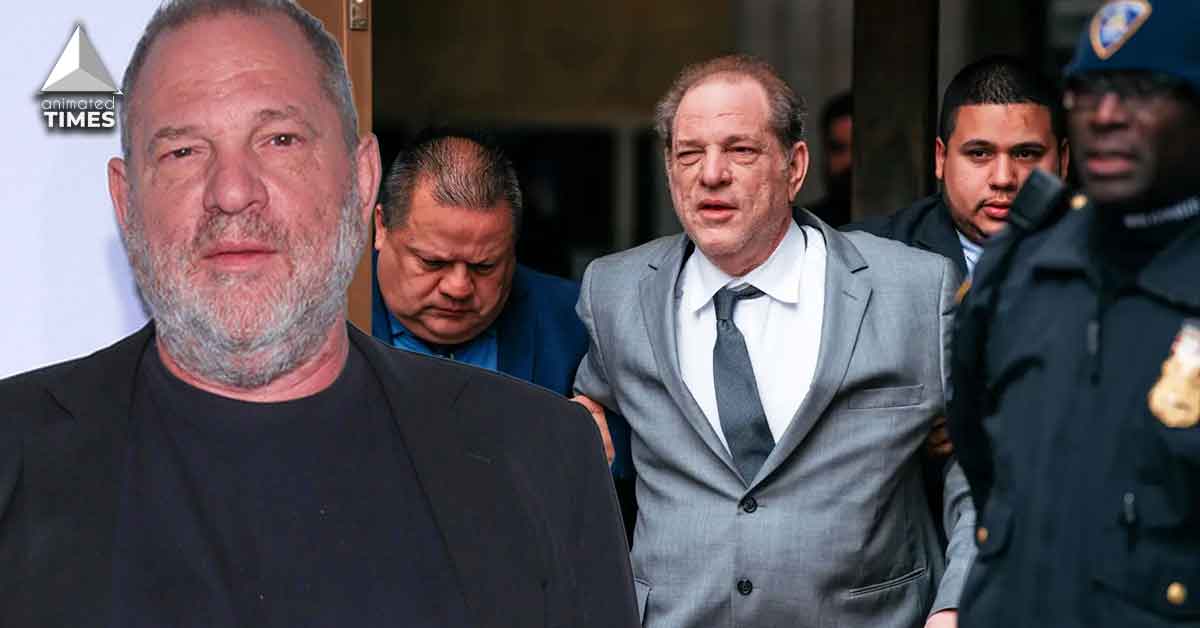Game Over Weinstein: Already Serving a 23 Year Prison Sentence, Harvey Weinstein, 70, Loses Sexual Assault Lawsuit – Sentenced To Additional 16 Years in Jail
Weinstein’s legal team requested a lenient sentence of three years, citing his health and role as a father, but the judge was unmoved. One of the victims who testified against Weinstein gave an emotional impact statement, urging the judge to impose the maximum sentence. Weinstein declared his innocence and claimed that he did not deserve to spend the rest of his life in prison.

Weinstein’s fall from grace began in 2017 when several women came forward with allegations of inappropriate s**ual conduct, ranging from harassment to r**e. These accusations gave rise to the #MeToo movement and led to Weinstein’s arrest and subsequent conviction on multiple counts of r**e and s**ual assault.
The sentence in Los Angeles marks a historic moment in the fight against s**ual abuse and harassment, as it sends a clear message that powerful individuals too will be held accountable for their actions. It also serves as a reminder of the harm caused by such behavior and the ongoing need for vigilance in preventing and addressing s**ual violence.
Harvey Weinstein’s rise and fall in Hollywood
Harvey Weinstein was once one of the most powerful figures in Hollywood, having co-founded the production company Miramax with his brother Bob in 1979. The company went on to produce numerous critically acclaimed and commercially successful films, including Pulp Fiction, Shakespeare in Love, and The English Patient.
Weinstein’s influence extended beyond the film industry, as he became known for his philanthropy and political connections. He was a major fundraiser for the Democratic Party and a frequent donor to charitable causes, particularly those related to the arts and education.

However, Weinstein’s reputation began to crumble in 2017 when several women, including actresses Ashley Judd and Rose McGowan, accused him of s**ual harassment and assault. The allegations sparked a wave of similar claims from other women, many of whom were afraid to speak out for fear of retaliation.
Weinstein initially denied the allegations, but he was soon fired from his company and expelled from the Academy of Motion Picture Arts and Sciences. He was subsequently arrested and charged with r**e and s**ual assault in New York, leading to his conviction and sentencing to 23 years in prison.
The impact of the #MeToo movement on s**ual violence
The #MeToo movement emerged in response to the allegations against Harvey Weinstein and other powerful men, with the goal of raising awareness about the prevalence of s**ual harassment and assault in various industries. The movement also sought to shift the blame from the victims to the perpetrators and to hold those responsible accountable for their actions.

The impact of the #MeToo movement has been far-reaching, as it has led to increased reporting of s**ual violence and harassment, changes in workplace policies and practices, and a greater focus on prevention and education. The movement has also highlighted the need for intersectional approaches to addressing s**ual violence, recognizing that different groups may experience violence in distinct ways and may face additional barriers to seeking justice.
The sentencing of Harvey Weinstein to an additional 16 years in prison for r**e and s**ual assault in Los Angeles marks a historic moment in the fight against s**ual violence. It sends a clear message that no matter how powerful, individuals will be held accountable for their actions and that survivors will be heard and believed.





